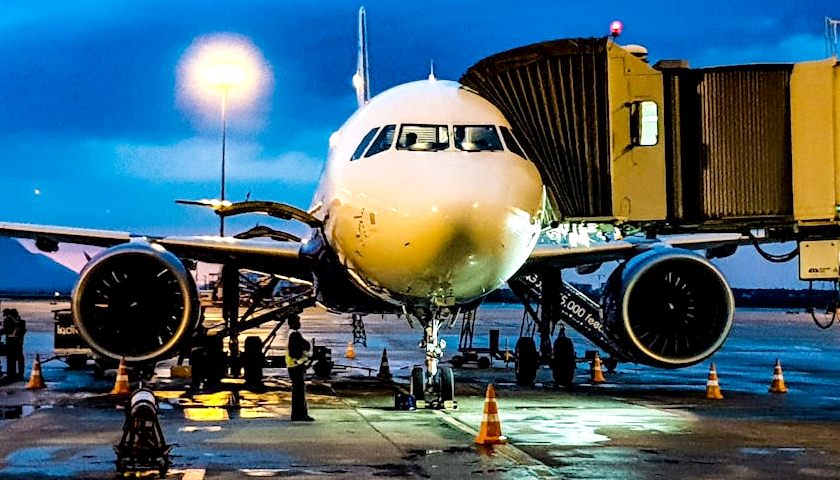by Robert Schmad
A coalition of major airlines has formed a group supporting a tax credit pushed by President Joe Biden that experts say could jack up food prices.
More than 40 companies, including Boeing, American Airlines, JetBlue and United as well as ethanol trade groups, are pushing the federal government to “expand” existing tax credits for “sustainable aviation fuel” (SAF) and to pass legislation to increase the fuel’s availability, Axios reported. Corn-based ethanol is a common component in SAF and experts previously told the Daily Caller News Foundation that increasing the demand for corn by incentivizing its use in jet fuel could indirectly raise food costs for Americans.
 The Biden administration is reportedly planning to disclose how it will measure eligibility for the SAF tax credit, per recent reports. A bipartisan group of senators, many of whom represent states that produce large amounts of corn, sent a letter to Treasury Secretary Janet Yellen in June 2023 urging her department to adopt the U.S. Department of Energy’s Greenhouse Gases, Regulated Emissions, and Energy Use in Technologies (GREET) model for calculating SAF tax credits.
The Biden administration is reportedly planning to disclose how it will measure eligibility for the SAF tax credit, per recent reports. A bipartisan group of senators, many of whom represent states that produce large amounts of corn, sent a letter to Treasury Secretary Janet Yellen in June 2023 urging her department to adopt the U.S. Department of Energy’s Greenhouse Gases, Regulated Emissions, and Energy Use in Technologies (GREET) model for calculating SAF tax credits.
GREET, if adopted, would make it easier for ethanol to be deemed sufficiently eco-friendly to qualify for SAF tax credits.
The SAF credit, created by Biden’s Inflation Reduction Act, provides airliners with a tax credit worth $1.25 for each gallon of SAF contained within a qualifying mixture of jet fuel, according to the Internal Revenue Service. In order to qualify for the credit, the SAF must have a minimum reduction of “50 percent in lifecycle greenhouse gas emissions,” with additional credit available for fuels offering greater reductions.
If demand for ethanol increases as a result of the fuel qualifying for tax incentives, Americans could see their grocery bills go up, according to experts.
Increased ethanol in jet fuel will produce costs “borne by consumers, taxpayers and the environment,” Distinguished McKnight University Professor of Applied Economics and Law at the University of Minnesota C. Ford Runge, previously told the DCNF.
Ethanol production increases the cost of food by making corn more expensive and by increasing the cost of feed used to produce meat, dairy and eggs, according to an Iowa State University policy brief.
Airlines are pushing to expand the credits at a time when average Americans are struggling to keep up with surging food prices. Food spending as a proportion of income in the U.S. reached its highest point since 1991 in 2022, according to the U.S. Department of Agriculture.
Runge said that ethanol SAF tax credits are “not going to do much for global warming, but it will do quite a lot to benefit the renewable fuel industry and it will also indirectly benefit corn prices.”
It’s also unclear if SAFs will have any sizable impact on carbon emissions, Stanford University Civil and Environmental Engineering professor Mark Jacobson previously told the DCNF.
“SAFs are definitely not a climate solution at all, let alone an effective solution,” Jacobson said. “Ethanol production from corn increases CO2-equivalent emissions by 0 to 24 percent relative to gasoline and increases the price of corn (making it more expensive to eat).”
Increased corn cultivation spurned by increased ethanol production could also further deplete already strained aquifers in America’s heartland, according to a New York Times analysis.
The Treasury Department did not immediately respond to the DCNF’s request for comment.
– – –
Robert Schmad is a reporter at Daily Caller News Foundation.
Photo “Plane at Gate” by Soumya Ranjan.





